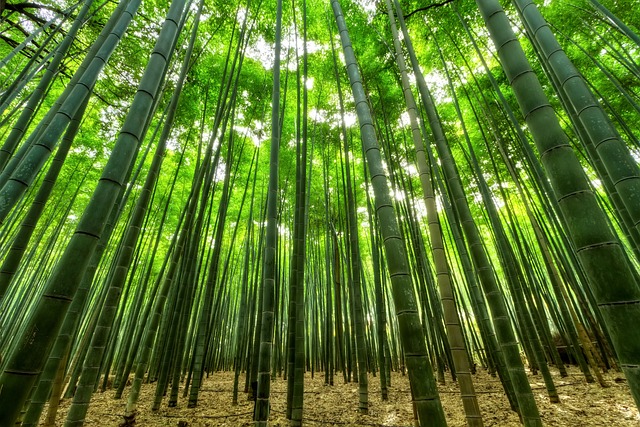10 Amazing Bamboo Facts
Nature WorldWide April 27, 2024 0
Bamboo, with its versatility, sustainability, and beauty, captivates as a fascinating plant. Across the globe, in regions like Asia, Africa, and South America, over 1,400 bamboo species flourish. This remarkable plant exhibits diverse shapes, sizes, and colors. Now, let’s uncover some intriguing 10 Amazing Bamboo Facts you might not be familiar with.
10 Fascinating Bamboo Facts
Rapid Growth:

Bamboo holds the title of the fastest-growing plant globally, with some species reaching an astonishing growth rate of four centimeters per second. Certain types can surge up to 91 cm in just one day, and upon reaching three feet in height, they can shoot up several feet daily.
Grass, Not Tree:
Despite its tree-like appearance, bamboo is classified as a Grass, not a tree. It lacks secondary growth typical of trees and instead relies on a rhizome-dependent system, sprouting from underground stems called rhizomes.
Read More: 10 Most Oxygen Producing Trees in India
Strength and Flexibility:

Despite its lightweight nature, bamboo is remarkably strong and flexible, making it a prized material for construction and architecture due to its stable and secure root structure.
Superfood for Wildlife:

Bamboo serves as a vital food source for numerous animals, earning it the moniker “superfood” due to its high nutritional value and low toxicity. Pandas, lemurs, gorillas, monkeys, and various bird species rely on bamboo for sustenance, shelter, and habitat.
Read More: Top 10 Fastest-Growing Trees in India
Soil Erosion Prevention:

Many might not be aware, but bamboo grass possesses a remarkable ability to combat soil erosion. Its extensive root system delves deep into the soil, forming a robust network that stabilizes the ground and prevents it from being washed away by heavy rainfall or strong winds. Furthermore, bamboo’s roots absorb water and nutrients from the soil, reducing the amount available for erosion.
Carbon Sequestration:

Bamboo acts as a highly efficient carbon sink, absorbing Carbon Dioxide (CO2) and releasing oxygen (O2) through photosynthesis. It can absorb up to five times more CO2 and produce up to 35% more oxygen than other trees.
Read More: Sacred Trees, Plants and Fruit in Hindu Culture
Sustainable Crop:
Bamboo is an incredibly sustainable crop, requiring minimal water and thriving in diverse climates and soil types. Unlike conventional crops like cotton and corn, bamboo cultivation necessitates no fertilizers, pesticides, or herbicides, making it an eco-friendly alternative.
Water Filtration:

Bamboo’s remarkable ability to filter water stands out as one of its most intriguing qualities. Thanks to its unique properties, bamboo serves as a natural solution for water purification. With its high surface area and porosity, bamboo can effectively absorb pollutants, bacteria, and other impurities from water as it passes through.
Edible with Medicinal Properties:
Bamboo possesses natural antibacterial properties, making it ideal for kitchen utensils like cutting boards. It’s also used in traditional medicine to treat various ailments, including respiratory issues, fever, and infections.
Read More: Top 8 Fast-Growing Trees in India
Source of Income:

Bamboo offers numerous benefits for farmers, providing employment opportunities and contributing to the economy. Its fast growth and versatility make it an ideal crop for small-scale farmers, particularly women, who can cultivate it in their backyard and generate income. Additionally, bamboo finds applications in various industries, from construction to fashion, fostering employment and entrepreneurship, especially among women skilled in weaving and handicrafts.




